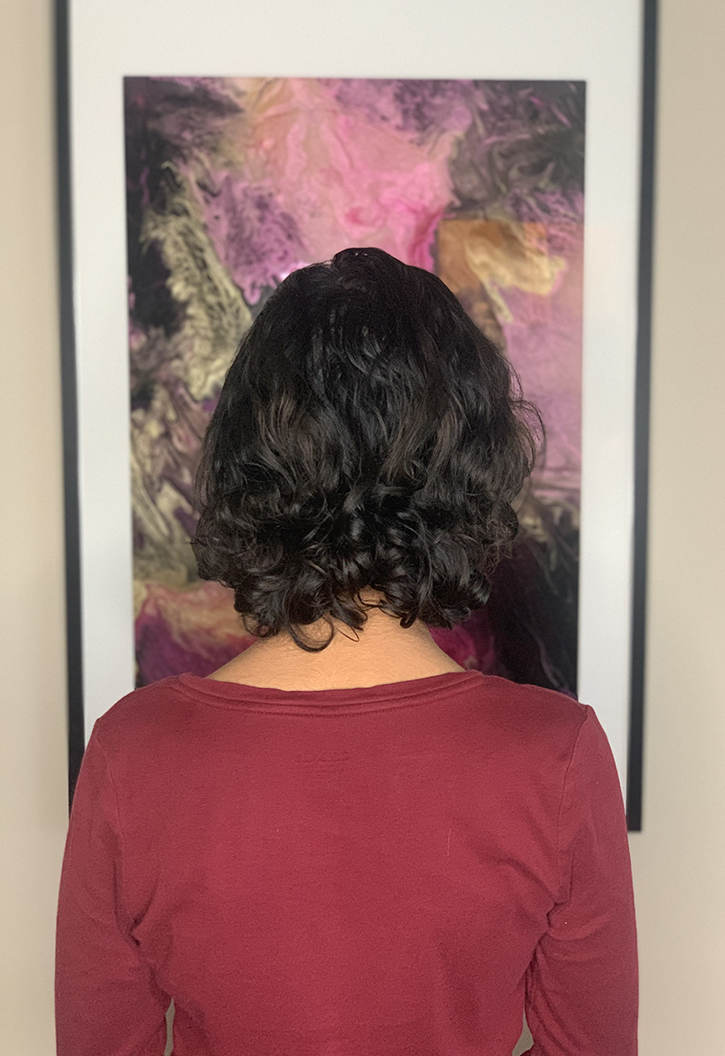Brown Girl in Recovery recounts her journey to sobriety by starting at the beginning.
By Brown Girl in Recovery, Photo courtesy of Brown Girl in Recovery
Trigger Warner: This story mentions an eating disorder.
I am Brown Girl in Recovery.
If you brilliant readers will remember, I (briefly) dedicated my first column back in February to who I am and why I am recounting my story of recovery. Now, I will start sharing more of the darker parts of my alcoholic journey. I believe it is important to share every aspect of my story. This means the not-so-pretty parts too. Why? For two reasons. One, it is healing for me. Being open and honest with you releases the shame and embarrassment I tend to feel (even being well into my 30s, with seven years of sobriety). Two, I want to help other Brown women like me see there are solutions to alcoholism and that they are not alone. So here we go.
As a teenager, I was determined to go to law school. I had this idea in my head of how my life would be, the great things I would do. Then I graduated from college a semester early and went straight to law school. I was 21. It wasn’t my dream school, but I didn’t let that bother me too much. I rationalized that not everyone gets into their dream school, but they can still do something good with it. That’s what I kept telling myself. Looking back, I should have sat out a semester or two, retaken the LSAT and reapplied to schools. Maybe that would have afforded me a better experience. But who knows? It is always easy to look back and see the different ways you could have handled certain situations. But what good does that do?

Long story short, I started struggling right away in law school. Looking back, it just wasn’t a good fit. At the time, the discomfort of the struggles was not something I was used to feeling. My solution was to bury the voice in my head telling me to “quit while I was ahead.” Instead, I began to binge and purge my food and developed bulimia. (Years later and after I got sober, therapy taught me that one reason I turned to binging and purging was as a coping mechanism. It was also the one thing that I felt I had control over when law school and life, in general, felt unpredictable and uncomfortable.)
It happened quickly, in just the first month of law school. I honestly didn’t think what I was doing was a harmful way to deal with my struggles. I viewed it as a temporary behavior that was helping me get through some difficult times. For three years, I struggled pretty consistently with bulimia. I didn’t tell anyone. Although I suspect that some people figured out what I was doing, no one said anything. I lost a bunch of weight and got some cute new clothes. “No biggie,” I thought. I did not realize the harm I was doing to my body. In your early 20s, you think you are pretty invincible and nothing can hurt you. Or at least I did.
I found a solid group of girlfriends, but most of us drank and partied hard. It was how we unwound. I, however, took it one step further. I’d black out regularly, and my friends would have to take me home and put me to bed. I just thought this was a rite of passage, totally normal, what everyone in graduate school did. Again, a temporary behavior helping me to cope. Therapy allowed me to realize that I did it so I could disassociate from my experience, numb myself and forget who I was and what I was doing. I was managing life semi-okay and was still in law school.
I sure did have a rocky climb from the bottom to become who I am today, but this part of the story is just the beginning of my journey. Was I an alcoholic at this point? No. Did I have horrible coping mechanisms? Yes. What happened next? In sharing more about my journey in the coming issues, I hope to give other Brown women a space to reflect, perhaps nod along and feel less alone, and realize life is going to eventually be okay.

